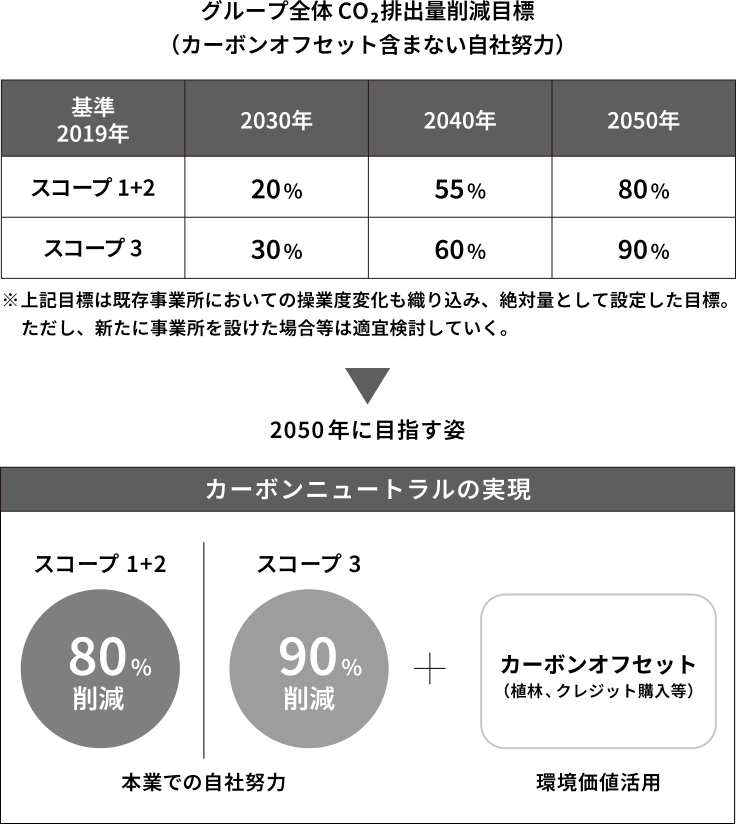Disclosing Information Based on TCFD Recommendations
The TSUNEISHI Group's shipbuilding, shipping and other businesses are heavily influenced by the health of the global environment. Therefore, various risks posed by climate change that are expected to materialize in the coming years are likely to become major management issues. In order to mitigate such risks, TSUNEISHI HOLDINGS has been working with the rest of the Group on environmental initiatives. Since these efforts coincide well with the objectives of the Task Force on Climate-Related Financial Disclosures (TCFD), in April 2022, we announced our support for the TCFD's recommendations. Based on these recommendations, the Group is now undertaking information disclosure from the four perspectives of governance, strategy, risk management, and metrics and targets. This process allows us to better create new business opportunities and strengthen our management foundation while responding appropriately to developments driven by climate change.
※TCFD: The Task Force on Climate-related Financial Disclosures was established by the Financial Stability Board (FSB) at the request of the G20. It encourages companies to disclose information about the risks and other impacts of climate change on their businesses.
Governance
To promote sustainability initiatives, the Group has established a Sustainability Committee. The committee is chaired by the director in charge of sustainability at TSUNEISHI HOLDINGS, and its membership consists of the presidents of each operating company. It makes policy decisions, reviews each relevant initiative, and promotes activities across the entire Group. It has deliberated and determined the Group's basic sustainability promotion policy, the Group's announcement in support of the TCFD, and its CO2 emissions reduction targets. Moreover, the policies and targets discussed by the Sustainability Committee are discussed in more detail at the sustainability promotion Council of each operating company. These Council plan and implement measures that suit the business conditions faced by their respective companies.
Strategy
The TSUNEISHI Group has analyzed the climate-change risks and opportunities for its business from two perspectives. The first is transition risks. This covers the impacts resulting from social and economic changes that could occur if nations strengthen policies and regulations in an effort to limit the global average temperature rise to less than 1.5 °C compared to pre-industrial levels. The second is physical risk. This covers the impacts of extreme weather events that could occur if the global average temperature rise reaches 4 °C or more due to a lack of stricter regulations. Based on the results of this analysis, we investigated measures to cope with the potential issues that would likely have a large impact on our business activities and finances, and that we considered to be of high significance. We focus the analysis on the Group's three segments of shipbuilding, shipping, and environment, which currently have high CO2 emissions compared to our other businesses.
Risk impact assessment and mitigation strategies
To evaluate the degree of risk significance, we analyze two factors: (1) the degree of impact on income or expenses if the identified risks were to materialize; and (2) the timing and frequency of risk materialization. After categorizing the potential risks as high, medium, or low, we listed only high and medium risks.
Shipbuilding Business: TSUNEISHI SHIPBUILDING
Shipping Business:KAMBARA KISEN
Environment Business:TSUNEISHI KAMTECS CORPORATION
Risk Management
・ The identified and evaluated risks and opportunities related to climate change are then analyzed and examined by the Sustainability Promotion Council at each operating company, and the resulting details are deliberated by the Sustainability Committee. In addition, operating companies regularly look for significant changes in their business environments. Whenever a re-analysis of the risks and opportunities appears to be necessary, the Sustainability Committee deliberates as appropriate.
・ In the case of particularly serious risks, we take them into account when setting business targets for each operating company, implement countermeasures, and manage progress achievement.
Metrics and Targets
・ The TSUNEISHI Group is establishing long-term CO2 emissions reduction targets to be achieved by 2050 and will work to achieve milestone targets in 2030 and 2040 based on 2019 emissions levels.
・ We will also pursue businesses that can help decarbonize society as well as our own operations.











